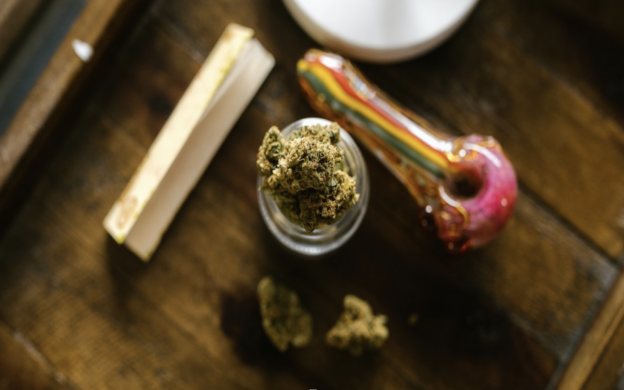Cannabinoids, the compounds found in cannabis plants, have garnered significant attention for their potential effects on mental health. Two primary cannabinoids, THC (tetrahydrocannabinol) and CBD (cannabidiol), are often at the center of discussions regarding their influence on various aspects of mental well-being.
While cannabinoids may be helpful in treating rare forms of epilepsy and nausea and vomiting from chemotherapy, they are not without risk. Cannabis can also cause psychotic episodes in some individuals, which may be linked to a heightened risk of developing a psychotic disorder later in life.
Let’s dig deeper into the distinct roles that THC and CBD play in relation to psychosis risk.
Understanding Cannabis-Induced Psychosis
Psychosis is not a mental illness, but rather a set of symptoms that make a person feel detached from reality. During an episode of psychosis, an individual may have a hard time telling the difference between what’s real and what’s not real. These episodes are most common in teens and young adults, though they can happen to anyone.
While psychosis is typically linked to a mental illness, such as bipolar disorder or schizophrenia, substance use can also trigger it. This is the case with cannabis-induced psychosis. Instead of a mental health disorder causing the psychosis, it’s the cannabis use.
Common symptoms include:
- Hallucinations
- Paranoid delusions
- Suspiciousness
- Dissociation
- Disturbed thoughts
- Emotional responses
Fortunately, psychosis is not common when consuming cannabis. Still, it can happen, especially with today’s marijuana being more potent than ever. If an individual experiences cannabis-induced psychosis, they may require immediate treatment for their distressing symptoms.
THC: The Psychotropic Compound
THC, the psychoactive cannabinoid found in cannabis, is primarily responsible for the euphoria and altered perceptions associated with cannabis consumption. When THC interacts with the brain’s endocannabinoid system, it releases neurotransmitters that cause a state of euphoria and relaxation.
However, THC’s effects on mental health are complex, with higher doses and frequent use linked to an increased risk of adverse psychological outcomes, including psychosis. Studies show that the THC in cannabis can cause short-term psychosis until the drug has been fully metabolized in the body.
While most weed psychosis symptoms are not dangerous, they can still lead to negative outcomes. For instance, when people lose touch with reality, they are more likely to exhibit behaviors that pose a risk to themselves or those around them. They may also engage in risky behaviors, like reckless driving or unprotected sex.
Furthermore, Yale research shows adolescents are two to four times more likely to develop a schizophrenia spectrum disorder when exposed to cannabis. Other factors that impact a person’s susceptibility to experiencing psychosis include the amount of cannabis taken, the duration of exposure, and the potency of the drug.
CBD: The Non-Psychotropic Counterpart
CBD, on the other hand, is a non-psychotropic cannabinoid that accounts for less than half of the hemp plant’s extract. Like THC, CBD also interacts with the endocannabinoid system to release neurotransmitters in the brain, altering mood, appetite and pain response.
While THC activates CB1 receptors in the brain, causing feelings of euphoria, CBD is an antagonist. This means it will counteract the effects of a high, rather than produce one. This is why CBD has attracted attention for being a therapeutic tool, as it offers the benefits of cannabinoids, but without the high.
Researchers are now exploring the possibility that CBD can be used to prevent or treat psychosis. But even with these potential benefits, there are still concerns about CBD. It is an uncontrolled and unregulated market, and some research suggests possible harm to the liver and reproductive systems.
Additionally, it appears CBD only helps with hallucinations and delusions, and not mood disruption or affective flattening. Therefore, more research is needed to determine the true safety and effectiveness of CBD.
Final Thoughts on the Relationship Between THC, CBD and Psychosis
The relationship between cannabinoids and psychosis risk is multifaceted, with THC and CBD exhibiting different effects. THC’s psychotropic properties have a potential increase in psychosis risk. However, CBD holds promise as a potential antipsychotic agent that may counteract some negative effects of THC. More research is needed to determine the true impact of cannabis on mental health.
Awakenings provides holistic treatment for substance use and mental health disorders. While cannabis is legal in many states, including California, it is not without risk. My Awakenings team and I see the true effects of this drug, which may include psychosis and other mental health problems. To discuss the concerns with cannabis use (for yourself or a loved one), please contact us today. If you missed it, I recently spoke about the cannabinoids and psychosis risk on the Broken Brain Podcast.








